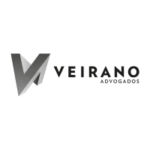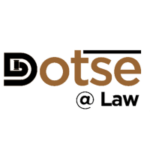-
Are there specific legal requirements or preferences regarding the choice of entity and/or equity structure for early-stage businesses that are seeking venture capital funding in the jurisdiction?
Businesses in Singapore can be established as sole proprietorships, partnerships, or companies with limited or unlimited liability. Start-ups seeking venture capital are almost always structured as private companies limited by shares. This designation means that a shareholder’s liability to the company’s creditors is limited to the amount of share capital originally invested in consideration for their shares.
Private companies limited by shares may have a maximum of 50 shareholders. Employees are not counted towards this limit; however, companies should be aware that employees who hold options and exercise those options for shares after their employment has ended will no longer qualify for this exemption. Consequently, it is common for companies to administer their employee equity plans through a special purpose vehicle (SPV) or trust structure. SPVs are also frequently used to manage equity invested by smaller angel investors, including SAFE (Simple Agreement for Future Equity) investors, as discussed in more detail below.
A private company which exceeds the 50-shareholder limit will be required to convert into a public company and will be subject to more stringent periodic reporting requirements, certain prospectus obligations related to the offer and issuance of securities, and all rules and regulations applicable to public companies.
-
What are the principal legal documents for a venture capital equity investment in the jurisdiction and are any of them publicly filed or otherwise available to the public?
The primary documents associated with venture capital investments include:
- Term Sheet: This document outlines the key terms and conditions of the investment, including valuation and dilution, price protections, economic rights attached to shares, governance rights, obligations of shareholders, and conditions to closing. The term sheet is generally non-binding, except with respect to confidentiality and exclusivity/no-shop provisions.
- Share Subscription Agreement: This agreement details the closing mechanics as well as the warranty and indemnity obligations of all parties.
- Disclosure Letter: Often referred to as the schedule of exceptions, this document specifies the exceptions to the warranties stated in the share subscription agreement.
- Shareholders Agreement: Generally regarded as the most heavily negotiated and scrutinised document in any venture transaction, this agreement details the company’s obligations to its shareholders as well as the shareholders’ rights and their obligations to each other and the company.
- Constitution: This serves as the contract between the company and the state, establishes the terms for each class of shares, replicates the negotiated shareholder rights and obligations found in the shareholders agreement, and provides for specific corporate governance formalities regarding director and member meetings and approvals.
- Director and Member Resolutions: These documents approve the transaction, including the issuance of shares, the appointment of directors, and other requisite corporate actions.
The constitution, director and member resolutions, and share lodgements with the Electronic Register of Members (EROM) managed by the Accounting and Corporate Regulatory Authority (ACRA) are available to the public.
-
Is there a venture capital industry body in the jurisdiction and, if so, does it provide template investment documents? If so, how common is it to deviate from such templates and does this evolve as companies move from seed to larger rounds?
The Singapore Venture and Private Capital Association (SVCA) is the primary professional organisation which promotes the development and interests of Singapore’s private capital industry. In recent years, a key initiative of the SVCA has been to promulgate the Venture Capital Investment Model Agreements (VIMA) as part of an effort to standardise the negotiation and execution of venture capital terms and best practices in Singapore domiciled start-ups.
The VIMA, now in its second version, serves as a useful point of reference for early-stage companies raising pre-seed and seed stage financing and aids founders in managing transaction costs at these stages. However, as companies scale and seek global capital, investors will expect to negotiate for bespoke terms that better align with the stage and size of their investment. For such investors, the general philosophy with which they approach deals across their portfolios will supersede any standardised terms found in the VIMA templates.
-
Are there any general merger control, anti-trust/competition and/or foreign direct investment regimes applicable to venture capital investments in the jurisdiction?
Singapore actively promotes a pro-business regulatory environment and is known for its minimal restrictions on foreign ownership. While foreign investment above a certain threshold into regulated sectors such as public utilities, land use and financial services, may be subject to approval by the applicable authorities, most sectors have no restrictions on foreign ownership, and there is generally no specific restriction on venture capital investments as an asset class.
The Competition and Consumer Commission of Singapore (CCCS) administers laws to prevent anti-competitive practices. Consolidations of businesses that may significantly reduce competition are subject to scrutiny, but this is rarely an issue in venture investments, which are typically for a minority ownership stake.
Singapore’s Significant Investments Review Act came into effect on 28 March 2024, requiring investors in certain entities deemed critical to Singapore’s national security interests to obtain approvals from the Minister for Trade and Industry (MTI) before acquiring controlling interests in such entities and to notify the MTI upon becoming a 5% controller of these entities. However, the list of designated entities is narrowly tailored and unlikely to have any significant impact on most venture capital investments.
-
What is the process, and internal approvals needed, for a company issuing shares to investors in the jurisdiction and are there any related taxes or notary (or other fees) payable?
Companies may issue shares to investors only in compliance with the constitution, shareholders agreement and the Singapore Companies Act 1967 (Companies Act). The constitution and shareholders agreement of a venture backed start-up will typically subject any dilutive issuance (other than customary exceptions, such as issuances out of a previously reserved equity pool for employees) to the approval of certain directors and shareholders in compliance with negotiated reserved matters. Depending on the price of the issuance, the company may also consider seeking waiver of anti-dilution adjustments. If the terms of the shares issued are not established in the company’s then existing constitution, the company will need to amend the constitution to provide for such shares, which requires a special resolution of more than 75% of all voting shares.
Under Section 161 of the Companies Act, the board must obtain authority for any issuance through a general meeting or equivalent written resolution of the members comprising a majority of the company’s voting shares. The 161 authority continues in force until the conclusion of the next annual general meeting or the expiration of the period within which the next annual general meeting of the company is required by law to be held, whichever is the earlier.
Stamp duty is not assessed on a primary issuance, but the company’s corporate secretary will need to lodge specific documents with ACRA, including the relevant resolutions, a notice of issuance of shares and application to update the company’s EROM.
-
How prevalent is participation from investors that are not venture capital funds, including angel investors, family offices, high net worth individuals, and corporate venture capital?
Angel Investors / HNWs: These often include friends and family, professional networks and sophisticated industry experts. Many start-ups invite participation from angels for a variety of strategic and personal reasons. Most angels participate only up to a certain valuation and check size, and commonly via instruments such as SAFEs. We have seen more active participation from angel networks such as AngelList via roll-up vehicles (RUVs). An RUV is a legal entity (usually a limited liability company or limited partnership) where multiple angel investors pool their money in order to gain access to opportunities with higher minimum allocations and to streamline admin costs. Unlike individual angels, RUVs typically participate in follow-on rounds and up to a higher valuation.
Family Offices: It is relatively uncommon for family offices to directly lead investments in early-stage start-ups. This is primarily due to the broader asset management mandates of their investment principals, as well as a lack of specialization and resources required to manage such investments effectively. However, family offices do occasionally co-invest alongside venture funds in which they hold limited partner positions, enabling them to increase their exposure to specific companies or sectors on a case-by-case basis. In recent years, family offices have emerged as active providers of private credit, offering loans and mezzanine financing, particularly as traditional banks tightened lending criteria due to regulatory changes and economic uncertainties.
Corporate Venture Capital: The venture arms of large multinational corporations—which have traditionally invested strategically in start-ups to gain access to innovative technologies, market insights, and rights of first offer or refusal for collaborations or partnership opportunities—have remained active in the market. The relatively lower urgency among corporate VCs to secure financial returns through an exit presents an appealing proposition for founders who are under pressure from venture investors to achieve liquidity.
Venture Builders / Start-Up Labs: Venture builders and start-up labs play a significant role in the venture ecosystem. These programs incubate vital technologies and provide resources—both financial and human capital—to assemble experienced and highly qualified management teams and achieve product-market fit before seeking venture funding. However, they often operate at a higher cash burn rate, and without appropriate incentive structures in place, key contributors may be tempted to pursue more lucrative opportunities elsewhere.
-
What is the typical investment period for a venture capital fund in the jurisdiction?
Historically, most venture funds aim to deploy their capital within 3-5 years of achieving a final close and to realise a fund exit within 7-10 years. However, this timeframe is significantly influenced by macroeconomic cycles and the fund’s mandate. For instance, this period was shortened for many funds during the immediate post-Covid years of 2021 and 2022, when there was a surge in activity across all investment stages and sectors. Many venture funds were also actively raising new funds to capitalise on a favourable interest rate environment, which further incentivised them to deploy existing funds quickly because their limited partnership agreements typically restrict the establishment of new investment funds with similar objectives until a certain proportion of their current fund’s capital commitments have been deployed.
However, in 2023 and 2024, there was a dramatic reversal as funds shifted their focus primarily to supporting existing portfolio companies and we expect this to continue through the next few years, as the fundraising environment remains challenging and such funds continue to conduct significantly more comprehensive due diligence on new opportunities.
-
What are the key investment terms which a venture investor looks for in the jurisdiction including representations and warranties, class of share, board representation (and observers), voting and other control rights, redemption rights, anti-dilution protection and information rights?
A new class of preference shares is typically created in connection with a venture financing. These preference shares include various economic and downside protection terms as well as governance and oversight rights. It is not uncommon to confine certain rights, including information rights, pre-emption rights, rights of first refusal and tag-along rights to “major investors” holding a specified percentage of the company’s share capital.
- Anti-dilution Rights: These rights allow investors to increase their fully diluted stake via a conversion price adjustment in the event the company fundraises at a lower valuation.
- Liquidation Preferences: This defines the priority in which investors are paid in the event of a company’s liquidation, sale, or dissolution, ensuring that preference shareholders receive their investment back before ordinary shareholders and, in some cases, earlier investors.
- Board Rights: Lead investors typically negotiate for the right to appoint a director to the company’s board, subject in some cases to maintaining a minimum shareholding threshold.
- Information Rights: These rights require the company to periodically provide certain financial reports and operational metrics to investors, as well as annual budgets and business plans.
- Pre-emption (or Pro Rata) Rights: These rights grant certain investors the opportunity to participate in future funding rounds, allowing them to maintain (and in some cases, increase) their fully-diluted ownership stake.
- Rights of First Refusal (or First Offer) and Tag-Along Rights: These rights give investors the first option to purchase shares being sold by other shareholders (typically founders) or the ability to participate in a sale transaction by founders to a third-party buyer.
- Drag-Along Rights: These rights enable a subset of shareholders to compel minority shareholders to participate in an exit, including a trade sale or change in control of the company.
- Board and Shareholder Reserved Matters: These provisions outline specific actions that the company cannot undertake without the approval of a designated group of investor directors and/or preference shareholders.
- Exit Rights: These may include demand registration rights in connection with a public listing, redemption or put option rights in default scenarios, and covenants requiring the company to use “reasonable” or “best” efforts to facilitate an investor exit within an agreed period of time.
- Restrictions on Transfer: These obligations are typically only imposed on ordinary shares or founder shares and include vesting terms, lock-ups, and good/bad leaver provisions (discussed in more detail below).
-
What are the key features of the liability regime (e.g. monetary damages vs. compensatory capital increase) that apply to venture capital investments in the jurisdiction?
Monetary remedies for investors are typically provided for in the subscription agreement in the event of a breach of warranties that results in loss. Indemnities provided by the company, and in some cases by the founders, serve to backstop against such breaches.
In a breach of the shareholders agreement, investors are entitled to, but are usually not limited to, monetary recourse. Specific performance and other injunctive remedies are generally available under the shareholders agreement. Additionally, in the case of a breach of the constitution, rescission may also be available as a remedy.
-
How common are arrangement/ monitoring fees for investors in the jurisdiction?
It is atypical for start-ups seeking venture funding to engage a financial advisor to broker a transaction or run a fundraising process, particularly in the early stages. Most venture investors will not agree for a portion of their investment to be directed toward third party broker fees, and the company will usually be expected to deliver a warranty to the investors through the subscription agreement that there are no broker fees payable at closing.
However, the lead investor (and in a minority of cases, existing investors providing follow-on funding) will require reimbursement of their legal and financial due diligence expenses, capped at an agreed amount. The expense cap is typically guided by:
- The complexity of the company’s corporate structure. If the company controls a number of operating subsidiaries and different jurisdictions, local counsel support and due diligence may be required to understand the ownership structures of those entities.
- Whether the company operates in a regulated industry. If the company operates in financial services, life sciences, consumer products or other regulated sectors, specialised regulatory and compliance due diligence may be required.
- Structure of the round. If the round triggers anti-dilution, involves multiple key investors, features staggered or tranched closings, parallel secondary transactions and/or negotiated valuation adjustment mechanics, the negotiations will inevitably be more protracted.
-
Are founders and senior management typically subject to restrictive covenants following ceasing to be an employee and/or shareholder and, if so, what is their general scope and duration?
Non-compete clauses can be an important part of protecting business interests in Singapore, but they must be carefully crafted and reasonably limited in scope, duration and in some cases, geography, in order to be enforceable. The company must be able to demonstrate that the activities restricted are directly related to the business and are necessary to protect the company’s legitimate business interests.
It is not uncommon for founders and key personnel to be subject to non-compete and non-solicit obligations for a period of 6 to 24 months following the cessation of their services. In the case of founders, these obligations are often documented in both the shareholders agreement as well as their individual employment letters. For rank-and-file employees who voluntarily resign, the non-compete period typically begins after the conclusion of the contractual notice period, although in the case of founders and significant employee shareholders, the non-compete period may only commence after they cease to hold a certain percentage of their equity in the company. In more restrictive scenarios, the non-compete period may not begin until the individual relinquishes all of their equity in the company.
-
How are employees typically incentivised in venture capital backed companies (e.g. share options or other equity-based incentives)?
Founder equity is typically issued at the time of incorporation, and investors generally expect such equity to vest over several years through time-based vesting. Other employees are granted options when they commence their services to the company, which are also subject to time-based vesting. Founders and key employees who experience dilution over time may be rewarded with refresh equity. This refresh equity may come with milestone and KPI-based vesting terms or be linked to non-traditional time-based vesting schedules.
Following a funding round, options are often granted instead of shares because, under the tax laws of most countries, the appreciation in the value of options becomes taxable only upon exercise, whereas the increase in value of shares is taxable as they vest. Tax assessed upon the exercise of options is calculated on the spread between the fair value at exercise and the strike price paid. Further, in addition to solvency requirements, Singapore law imposes a strict cap on ordinary share buybacks by the company (limited to 20% of the then outstanding ordinary shares per annual general meeting). Companies seeking to issue ordinary shares, as opposed to options, should be mindful that it may not be able to buy back significant amounts of unvested shares immediately after termination.
Options may be subject to acceleration terms as follows:
- “Single Trigger” Acceleration: This provision allows all or a portion of unvested equity to accelerate and become vested upon a liquidity event.
- “Double Trigger” Acceleration: This provision stipulates that unvested equity accelerates if a founder or key employee is terminated immediately before or within a specified period following a liquidity event.
In some instances, founders or key employees may negotiate for partial single or double trigger acceleration on a portion of their unvested equity. These acceleration features are intended to incentivise employees to strive for a successful exit event, ensuring that they are not denied the opportunity to earn or realize the value of unvested equity. In contrast to founders and members of management, the acceleration of vesting for rank-and-file employees is relatively uncommon. Investors typically view acceleration terms as dilutive to their interests at the time of an exit, and a potential acquirer will also consider such terms when evaluating their ability to retain these employees after an acquisition. If employees experience significant or complete acceleration of their unvested equity, an acquirer may need to offer additional equity as part of a retention package for these individuals, which can lead to further dilution for their own stakeholders.
-
What are the most commonly used vesting/good and bad leaver provisions that apply to founders/ senior management in venture capital backed companies?
In addition to imposing the restrictions discussed above on founder shares, investors typically expect the shareholders agreement to provide for “good” and “bad” leaver scenarios, along with associated claw-back rights on issued equity.
A “bad leaver” is usually defined as a founder or key employee who has been terminated for “cause” or has resigned without “good reason”. The definitions of “cause” and “good reason” are among the most heavily negotiated terms in a financing due to the personal impact these terms have on founders and management.
In a bad leaver scenario, the company—and occasionally other investors—will usually be granted the right to purchase some or all of the vested equity held by the bad leaver at nominal value or at a discount to the “fair value” of such shares. The fair value of ordinary shares may be determined by an independent third-party appraiser or derived based on a percentage of the latest preference share price. In contrast, in a good leaver scenario, vested equity may not be subject to a purchase right, or if it is, it will usually be at the then prevalent fair value. In both good and bad leaver situations, unvested equity is typically redeemable by the company at nominal value, subject to the 20% cap on buybacks and solvency requirements.
-
What have been the main areas of negotiation between investors, founders, and the company in the investment documentation, over the last 24 months?
Valuation and Dilution. The sharp decline in venture funding, which began in the second half of 2022, persisted throughout 2024. Southeast Asia’s venture capital deal activity in 2024 represented less than a quarter of the deal volume observed in 2022 and experienced a 30-40% decline compared to 2023. Persistent concerns about inflation and elevated interest rates in some of the world’s largest economies have dampened capital markets activity, while wars, elections, political tensions, and tariffs have continued to disrupt global supply chains and trade, creating uncertainty for investors. The consequence is heavier negotiation around valuation and dilution, with investors seeking to preserve the ability to re-price their investments downwards at a future date and founders seeking ways to restore some of the dilution they were required to concede.
The resetting of expectations (especially in companies that raised at lofty valuations in 2021 and 2022) combined with resistance from existing investors reluctant to realize markdowns on their portfolios, continues to result in gridlock in new dealmaking. To bridge this gap, some companies have explored structured rounds with the following features:
- Providing for conversion price adjustments tied to the failure to achieve milestones and KPIs, whereby the ratio at which preference shares may convert into ordinary shares in the future is subject to upward adjustment if such KPIs and/or milestones are not satisfied within a negotiated period of time.
- Management equity plans which resemble earn-out structures more commonly seen in trade sales and exit transactions, whereby a portion of equity is earmarked for issuance to management upon the achievement of certain KPIs and/or milestones, allowing them to recoup a portion of their dilution.
- Staggered or Tranched closings by investors hesitant to commit entire allocations without concrete evidence of performance, providing investors the option to invest the remaining amount within a 12 to 18 months period at the same or modestly higher valuation, while they assess the company’s trajectory and achievement of projections.
Internal Controls and Governance. Issues related to mismanagement, bad behaviour and financial irregularities among prominent regional start-ups are prompting investors to approach deals with increased scrutiny and implement stricter measures to hold management accountable. This has resulted in intensified negotiations on oversight and management responsibilities, and risk-shifting by venture investors to protect their investments through the following, often heavily negotiated, measures:
- Requiring founders to personally backstop warranties beyond the standard suite of “fundamental warranties,” including the accuracy of a company’s financial statements and catch-all anti-fraud warranties concerning misrepresentations and omissions during due diligence.
- Requiring founders to personally commit to certain ongoing covenants, such as implementing and complying with internal policies and procedures and disclosing interested party transactions.
- Imposing harsher penalties for breach of the aforementioned warranties and covenants, including requiring founders to personally indemnify investors and agree to “bad leaver” default terms.
- Expanding bad leaver clawback terms beyond the founding team and management to bind all employees and service providers and stripping away board and voting rights attached to management’s equity in such scenarios.
-
How prevalent is the use of convertible debt (e.g. convertible loan notes) and advance subscription agreement/ SAFEs in the jurisdiction?
SAFEs remain the most common form of convertible security instrument for pre-seed stage companies prioritising expediency and simplicity. YCombinator, which originated the SAFE over a decade ago, introduced a form of Singapore-law compliant SAFE in recent years. Convertible notes are more commonly used as bridge instruments once a company has raised one or more equity rounds. Convertible notes are often preferred by investors for one or more of the following reasons:
- Expediency: Note rounds can typically be closed within a relatively quick timeframe, ranging from 2 to 4 weeks, compared to the 6 to 10 weeks usually required for a priced equity round. This is because note financings generally do not involve negotiating or amending the shareholders agreement or the constitution, and notes do not need to be lodged with ACRA.
- Seniority: Notes provide investors with seniority over all equity, and the rights and preferences associated with these notes are often personal to the noteholder and cannot be amended or waived by other investors. As a result, note investors are usually more willing to forego extensive negotiations concerning downside protections and governance terms.
- Valuation: Notes may reduce or eliminate the necessity for an extensive valuation and pricing exercise, especially if they are convertible strictly on a discount-to-next-round basis or at the more advantageous of a discount or valuation cap.
- Investor Protections and Oversight: Events of default, along with restrictive governance terms and financial/operating covenants, are standard provisions in convertible notes. These terms grant noteholders a right through a security instrument to redeem, accelerate payment, or enforce other remedial actions in the event of a breach. Enforcement of rights under a note are typically regarded as more effective than pursuing a contractual breach claim under a shareholders agreement.
- Publicity: Since notes are not required to be lodged with ACRA, companies experiencing a reduction in valuation may prefer to raise funds through a note to avoid the public disclosure of a down round. When the notes eventually convert, public filings will reveal the lower pricing of the converted note shares. However, if the equity round converting the notes occurs at a more favourable valuation, the emphasis at such time will usually be on the new round valuation and avoid scrutiny around the pricing of the converting shares.
Companies should be mindful that convertible notes, even if unsecured and mandatorily convertible outside of a default event or maturity, will usually need to be accounted for as debt, which may increase a company’s cost of borrowing. It is also important to bear in mind that until such notes convert, it will be extremely difficult, if not impossible, for the company to attract any additional equity financing.
-
What are the customary terms of convertible debt (e.g. convertible loan notes) and advance subscription agreement/ SAFEs in the jurisdiction and are there standard from documents?
The standard form of SAFE includes terms providing for conversion upon a qualified equity financing with specified minimum gross proceeds requirements. SAFEs will also include either a discount on conversion, or convert according to a negotiated post-money valuation cap, or both. In a liquidity event, SAFE holders may convert the SAFEs into the most senior class of equity then outstanding, or receive a refund of their principal amount on the SAFE in priority to ordinary equity, but on par with other SAFEs and preference shares. The post-money nature of the SAFE means it is non-dilutive to the new round equity investors or to other SAFEs and convertible instruments. Importantly, this means that the entire dilution from a SAFE is borne by the then-existing shareholders without cross-dilution among SAFE holders.
Like SAFEs, convertible notes usually convert upon a qualified equity financing. However, convertible notes rank senior to all equity in a liquidation or liquidity event and are interest-bearing. Notes also include the following features, depending on the context for the note raise and the leverage of the investors:
- Maturity: This specifies a date at which the note may be optionally or mandatorily redeemed for the payment of principal and accrued interest, or optionally converted into the most senior class of shares then outstanding.
- Covenants: These govern certain requirements that the company must adhere to, and any breach or failure to comply will provide the noteholder the right to declare an event of default.
- Reserved Matters: Similar to provisions in shareholders agreements that favour investor directors and/or preference shareholders, these provide the noteholder with the right to approve certain company actions.
- Default Terms: These grant the noteholder the right to redeem against the company’s cash in priority to equity holders.
- MFNs: This provide the noteholder with the right to opt into more favourable terms that may be granted to future unsecured noteholders.
- Warrants: These serve as a sweetener for noteholders, typically tied to a certain coverage ratio based on the amount funded under the note. Warrants are exercisable for preference shares or ordinary shares at a negotiated valuation or at a discount to the price of the next equity round.
-
How prevalent is the use of venture or growth debt as an alternative or supplement to equity fundraisings or other debt financing in the last 24 months?
The venture debt market has become an important source of capital for start-ups in the region seeking alternatives to traditional equity financing. The increased focus on monetisation and profitability in recent years has made venture debt more accessible to start-ups, allowing them to secure such facilities at progressively earlier stages of their development. Both venture debt and growth stage bank debt are important supplements to equity fundraising as a company scales. Investors and founders alike often view debt capital as being less expensive than traditional equity capital when measured against the expected dilution of a priced equity round, which typically ranges between 15% and 25%.
-
What are the customary terms of venture or growth debt in the jurisdiction and are there standard form documents?
Venture and growth-stage debt terms vary depending on the lender and profile of the borrower, with the following being customary terms in most facilities:
- Maturity: Venture debt typically has a shorter maturity period of 1 to 3 years, with initial payments often being interest-only for a negotiated period before principal repayments begin. Bank debt typically has a longer maturity term, and its repayment terms can encompass a wide range of structures.
- Interest and Repayment: Due to the higher risk of default associated with earlier-stage borrowers, venture debt usually carries a higher interest rate than traditional growth-stage bank debt but a lower rate than unsecured mezzanine debt. Interest rates for venture debt may range between 10% and 15%, depending on the nature and stage of the borrower’s business and its creditworthiness. In contrast, bank debt interest is generally lower and may be variable against benchmark rates such as the New York Fed’s Secured Overnight Financing Rate (SOFR) or the London Interbank Offered Rate (LIBOR).
- Collateral Package: Both venture debt and growth-stage bank debt are typically secured by a first-priority charge on all material assets of the company. This includes intellectual property, bank accounts, trade receivables, and the share capital of significant subsidiaries, and may require the assignment of intercompany and shareholder loans. If a subsidiary is the borrower, the parent company and other downstream subsidiaries usually serve as obligors. In some instances, venture debt lenders may agree to be subordinated to existing or future bank debt, contingent upon the company satisfying specific conditions.
- Covenants: Bank debt facilities generally impose more stringent covenants, requiring adherence to debt-to-equity and other financial ratios, as well as operational benchmarks. Venture debt, on the other hand, tends to be more flexible, with drawdowns often contingent only on meeting minimum cash balances and receivables.
- Fees and Penalties: Prepayment and default penalties are common terms associated with growth-stage bank debt. While venture debt may include such penalties, it does not always feature arrangement and commitment fees, which are standard costs associated with bank debt facilities.
- Warrants: Venture debt is almost always accompanied by warrant coverage, typically ranging from 20% to 30%, which can be exercised for ordinary shares at a negotiated valuation.
-
What are the current market trends for venture capital in the jurisdiction (including the exits of venture backed companies) and do you see this changing in the next year?
Despite significant macroeconomic headwinds, funding activity is showing some signs of thawing through the first quarter of 2025, with many companies that previously raised substantial funding rounds now nearing the end of their cash runway. However, due diligence timelines have increase meaningfully as investors focus not only on the viability of the business model but the integrity of internal reporting. Start-ups backed by venture investors are expected to prioritise unit economics, and achieve product-market fit, demonstrate reliable monetisation strategies, and reach breakeven much earlier than in years past. The accelerated adoption of artificial intelligence tools will continue to have a significant impact on start-ups by aiding in the improvement of customer service, optimising costs, and addressing inefficiencies.
Exit transactions remain limited, but is expected to accelerate in 2025 as more funds near the end of their cycles and general partners face ongoing pressure to accept portfolio markdowns in order to attract buyers. Some venture funds with diversified investments across synergistic sectors have actively pursued a consolidation strategy, identifying candidates among their existing portfolio companies that may be combined to strengthen balance sheets and capture market share. Consolidation among venture-backed companies may also be an effective means to extend cash runway, eliminate redundancies in overhead costs, and create a more appealing package for potential acquirers.
-
Are any developments anticipated in the next 12 months, including any proposed legislative reforms that are relevant for venture capital investor in the jurisdiction?
We are not aware of any significant legislative changes which will have a meaningful impact on venture capital investors.
Singapore: Venture Capital
This country-specific Q&A provides an overview of Venture Capital laws and regulations applicable in Singapore.
-
Are there specific legal requirements or preferences regarding the choice of entity and/or equity structure for early-stage businesses that are seeking venture capital funding in the jurisdiction?
-
What are the principal legal documents for a venture capital equity investment in the jurisdiction and are any of them publicly filed or otherwise available to the public?
-
Is there a venture capital industry body in the jurisdiction and, if so, does it provide template investment documents? If so, how common is it to deviate from such templates and does this evolve as companies move from seed to larger rounds?
-
Are there any general merger control, anti-trust/competition and/or foreign direct investment regimes applicable to venture capital investments in the jurisdiction?
-
What is the process, and internal approvals needed, for a company issuing shares to investors in the jurisdiction and are there any related taxes or notary (or other fees) payable?
-
How prevalent is participation from investors that are not venture capital funds, including angel investors, family offices, high net worth individuals, and corporate venture capital?
-
What is the typical investment period for a venture capital fund in the jurisdiction?
-
What are the key investment terms which a venture investor looks for in the jurisdiction including representations and warranties, class of share, board representation (and observers), voting and other control rights, redemption rights, anti-dilution protection and information rights?
-
What are the key features of the liability regime (e.g. monetary damages vs. compensatory capital increase) that apply to venture capital investments in the jurisdiction?
-
How common are arrangement/ monitoring fees for investors in the jurisdiction?
-
Are founders and senior management typically subject to restrictive covenants following ceasing to be an employee and/or shareholder and, if so, what is their general scope and duration?
-
How are employees typically incentivised in venture capital backed companies (e.g. share options or other equity-based incentives)?
-
What are the most commonly used vesting/good and bad leaver provisions that apply to founders/ senior management in venture capital backed companies?
-
What have been the main areas of negotiation between investors, founders, and the company in the investment documentation, over the last 24 months?
-
How prevalent is the use of convertible debt (e.g. convertible loan notes) and advance subscription agreement/ SAFEs in the jurisdiction?
-
What are the customary terms of convertible debt (e.g. convertible loan notes) and advance subscription agreement/ SAFEs in the jurisdiction and are there standard from documents?
-
How prevalent is the use of venture or growth debt as an alternative or supplement to equity fundraisings or other debt financing in the last 24 months?
-
What are the customary terms of venture or growth debt in the jurisdiction and are there standard form documents?
-
What are the current market trends for venture capital in the jurisdiction (including the exits of venture backed companies) and do you see this changing in the next year?
-
Are any developments anticipated in the next 12 months, including any proposed legislative reforms that are relevant for venture capital investor in the jurisdiction?













